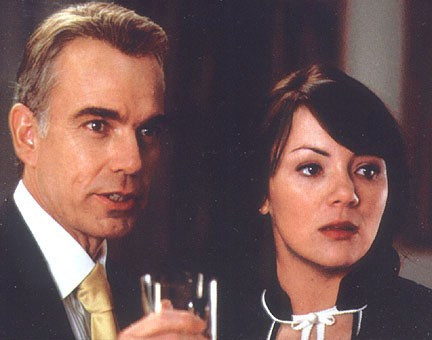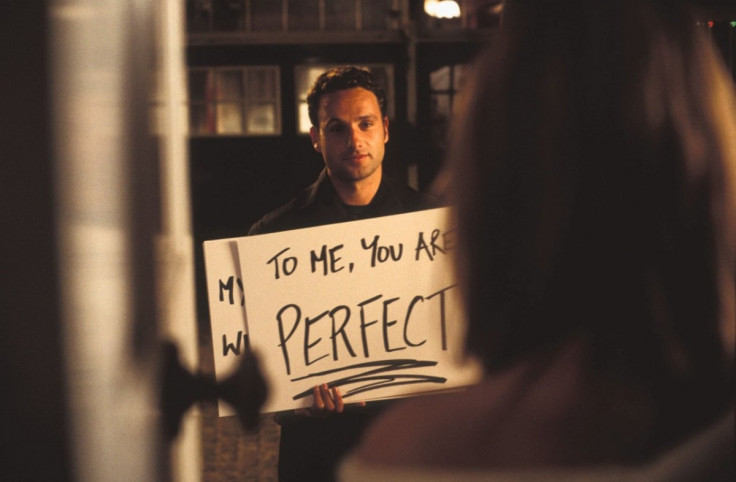All the sexist parts of 'Love Actually' you never noticed before

KEY POINTS
- The film is often considered to be a classic romantic holiday movie
- Even Colin Firth's character is guilty of a problematic storyline
With Christmas fast approaching and Netflix updating its films list, people have been desperately switching on Love Actually in an attempt to feel festive. The noughties rom-com has a stellar cast of Brit actors including Keira Knightley, Hugh Grant, Liam Neeson, Emma Thompson, Alan Rickman and more.
Like many romantic films and series, some scenes haven't particularly well. With our increasingly informed understandings of consent, power imbalance and gender dynamics, we're sorry to say that Love Actually has a number of problematic moments.
Here's a list of all the sexist scenes we have an issue with:
Natalie is basically told to leave for being sexually harassed

So, the President of the USA tries it on Natalie (Martine McCutcheon), who has recently started working in the Prime Minister's office. It's a horribly jarring scene where viewers can clearly see the President is abusing his position of power.
The result is the Prime Minister (Hugh Grant), who has clearly been developing feelings for Natalie, making a charged speech that hints at the US President being a bully. All good? No, Natalie is then asked to be "distributed elsewhere".
Mark falls in love with his best friend's wife

This is the scene where Mark (Andrew Lincoln), presented as the "nice guy", confronts his best friend's wife Juliette (Keira Knightley) with placards declaring his love for her. Up until this point they seem to have no real relationship, or friendship even.
In a Jezebel article from a few years ago, the writer notes how "that best man guy shows up at Keira Knightley's house and spawns a decade of nice-guy emotional manipulation re-framed as 'romance.' And Keira Knightley f*****g kisses him for it."
Ultimately it's selfish and manipulative.
The fat-shaming references directed towards women
If the above wasn't enough for Natalie, the words 'fat' and 'chubby' also seem to follow her around. Ignoring the fact that McCutcheon is a slim beautiful woman, she's characterised as the fat girl.
We're first properly introduced to her with a story about how her boyfriend dumped her because "she was getting fat." David's chief of staff refers to her as "the chubby girl" and later Natalie's father calls her "Plumpy". Why is everyone so obsessed with her body and unable to see her accurately?
Also, in the original Universal movie trailer, when Mark was declaring his feelings to Juliette, there was an extra card originally in the stack.
Mark was apparently going to call Juliette 'fatso' in this romantic moment and her reaction is just to giggle as it's a cute moment. They aren't friends so how does he feel comfortable to make a weight-related joke as well as emotionally manipulating her?
The women barely speak
The worst example of this is the love story between Aurelia (Lúcia Moniz) and Jamie (Colin Firth). He apparently falls in love with her at first sight – a handy story line considering they don't speak the same language. The effect is just a bizarre power imbalance in which Aurelia is Jamie's cleaner and Jamie 'loves' her without knowing anything about her as a person.
So the film isn't actually a good representation of love, actually, but at least it shows we're moving past lazy characterisations of women. If anything, we're holding culture to a higher mark to represent women as they are – powerful and able to speak for themselves.






















